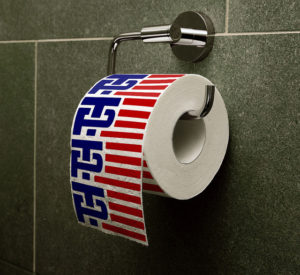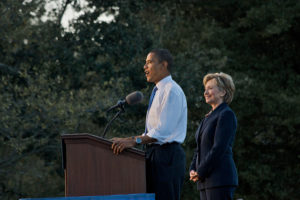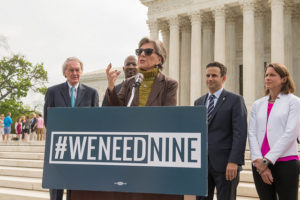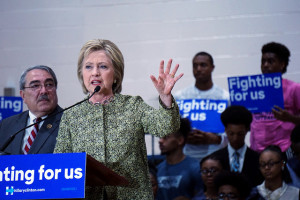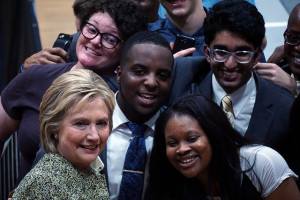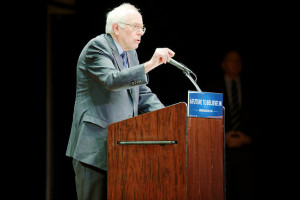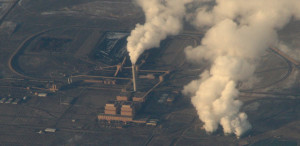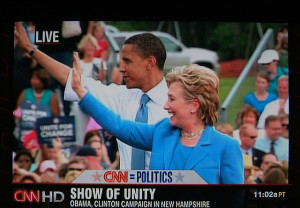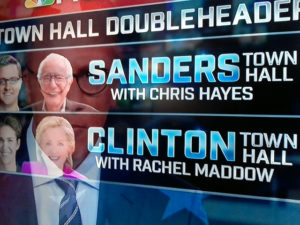
Hillary Clinton and Bernie Sanders during primary season.
Today in New Hampshire, Hillary Clinton and Bernie Sanders held a remarkable unity rally in which Sanders enthusiastically endorsed Clinton for president. Standing in front of a giant American flag with his beaming former rival, Sanders said:
Secretary Clinton has won the Democratic nominating process. And I congratulate her for that. She will be the Democratic nominee for president, and I intend to do everything I can to make certain she will be the next president of the United States.
Sanders went on to say, “I have come here to make it as clear as possible as to why I am endorsing Hillary Clinton, and why she must become our next president.”
Both Clinton and Sanders gave substantial speeches at the boisterous event, which highlighted each of their strengths and interests. For example, Sanders focused on economic issues, while Clinton spoke passionately about gun violence, saying, to big cheers, “surely we can agree that weapons of war have no place on the streets of America.” However, one area on which Clinton and Sanders both clearly agreed was the need to defeat Donald Trump in this year’s presidential election. For instance, Sanders said that Trump’s position on health care is the “same old Republican contempt for working families,” while Clinton said, “Donald Trump thinks wages are too high. . . . He does want to get rid of the federal minimum wage altogether.”
